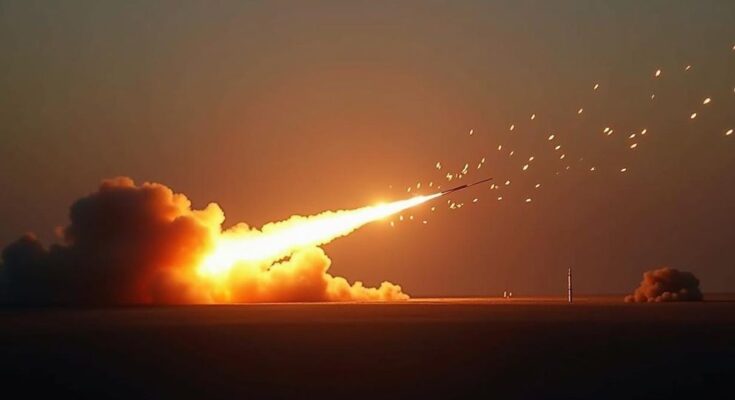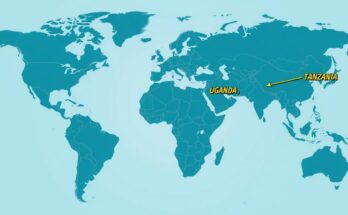Iran has launched dozens of ballistic missiles at Israel, escalating regional tensions. Turkey has pledged support for Lebanon amidst ongoing Israeli military actions, while airlines suspend flights due to safety concerns. Israel continues operations against Hezbollah, preparing for potential ground offensives, and uncovering significant military infrastructure in Lebanon. International reactions, including condemnations and appeals against arms shipments to Israel, highlight the complex geopolitical dynamics at play.
Iran’s Islamic Revolutionary Guard Corps has launched a significant missile strike, firing dozens of ballistic missiles towards Israel. In response to Israel’s military operations in Lebanon, Turkish President Recep Tayyip Erdogan expressed Turkey’s unwavering support for Lebanon, asserting, “We will never leave our Lebanese brothers on their own in these difficult days and will support them with all our means.” Meanwhile, KLM, the Dutch national airline, has announced the extension of its flight suspension to Israel, citing the deteriorating regional situation. Other major airlines, including Air France and Emirates, have also put similar measures in place. Reports indicate a recent airstrike targeted the southern suburbs of Beirut, further escalating tensions in the region. In light of ongoing operations, Israeli army spokesperson Daniel Hagari revealed that Israeli special forces have conducted targeted raids in Lebanon over the past months aimed at undermining Hezbollah’s capabilities. He noted progress in reducing Hezbollah’s arms and tunnel operations but acknowledged continuing threats. The military anticipates these operations, described as “limited,” will extend over the coming weeks, and evacuation orders have been issued for Israeli civilians in border regions, hinting towards potential ground offensives. Israeli columnist Gideon Levy remarked, “It is clear that Israel is preparing a ground operation,” yet the timelines remain uncertain, echoing concerns over a prolonged engagement similar to military actions in Gaza. Subsequent reports indicated Israeli strikes on anti-aircraft radar stations in southern Syria, asserting control over operational goals against Hezbollah. Additionally, Amnesty International has recently called on Montenegro and Slovenia to prevent a Portuguese-flagged cargo ship believed to be carrying explosives intended for Israel from docking, raising concerns over potential violations of international humanitarian law. China has also condemned any actions violating Lebanon’s sovereignty, advocating for restraint and dialogue in the region. As tensions continue to escalate, Israeli forces maintain operations within Lebanon, having uncovered significant infrastructure built by Hezbollah. The details gathered during these operations are slated for presentation to the international community as both military and diplomatic dynamics evolve in this volatile area.
The current situation between Israel and Hezbollah is rooted in ongoing tensions that have been exacerbated by military actions and political rhetoric in the region. Iran’s missile strike against Israel marks a significant escalation, showcasing increased hostilities and regional alliances. Turkey’s vocal support for Lebanon illustrates the complicated geopolitical landscape, with nations actively siding with parties involved in the Israeli-Lebanon conflict. Additionally, the suspension of flights by various airlines to Israel reflects the growing concerns over safety and stability in the region. Israel’s military operations have become increasingly aggressive as they aim to dismantle Hezbollah’s infrastructure, amidst fears of broader conflict.
The recent missile strike by Iran and growing tensions involving Israel, Hezbollah, and their respective allies underscore the precarious nature of the Middle East conflict. With military operations intensifying and international reactions highlighted by Turkey’s support for Lebanon and calls from Amnesty International regarding arms shipments, the situation remains volatile. Future engagements may lead to significant implications for regional stability, as both military actions and diplomatic efforts unfold.
Original Source: www.aljazeera.com




